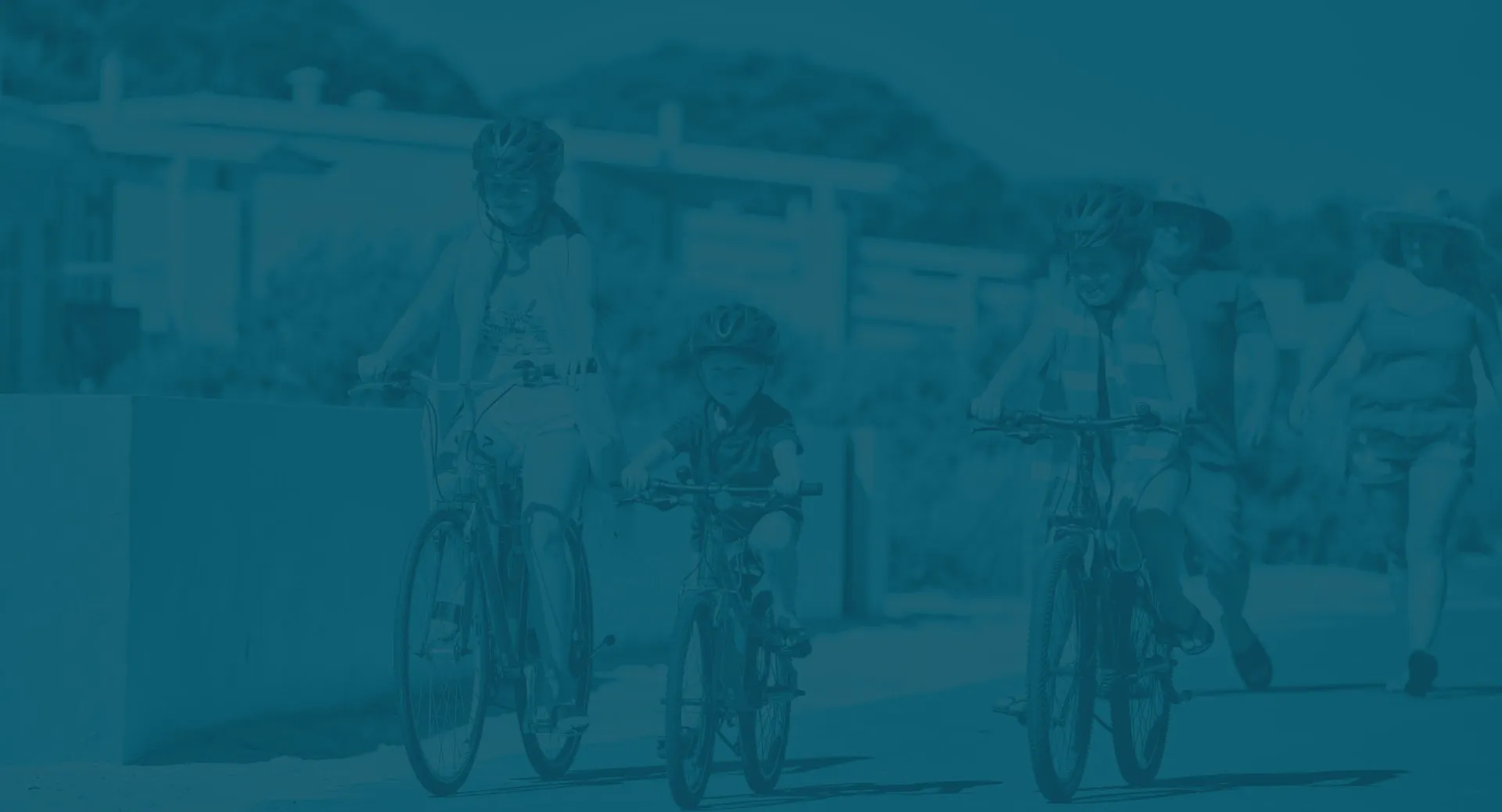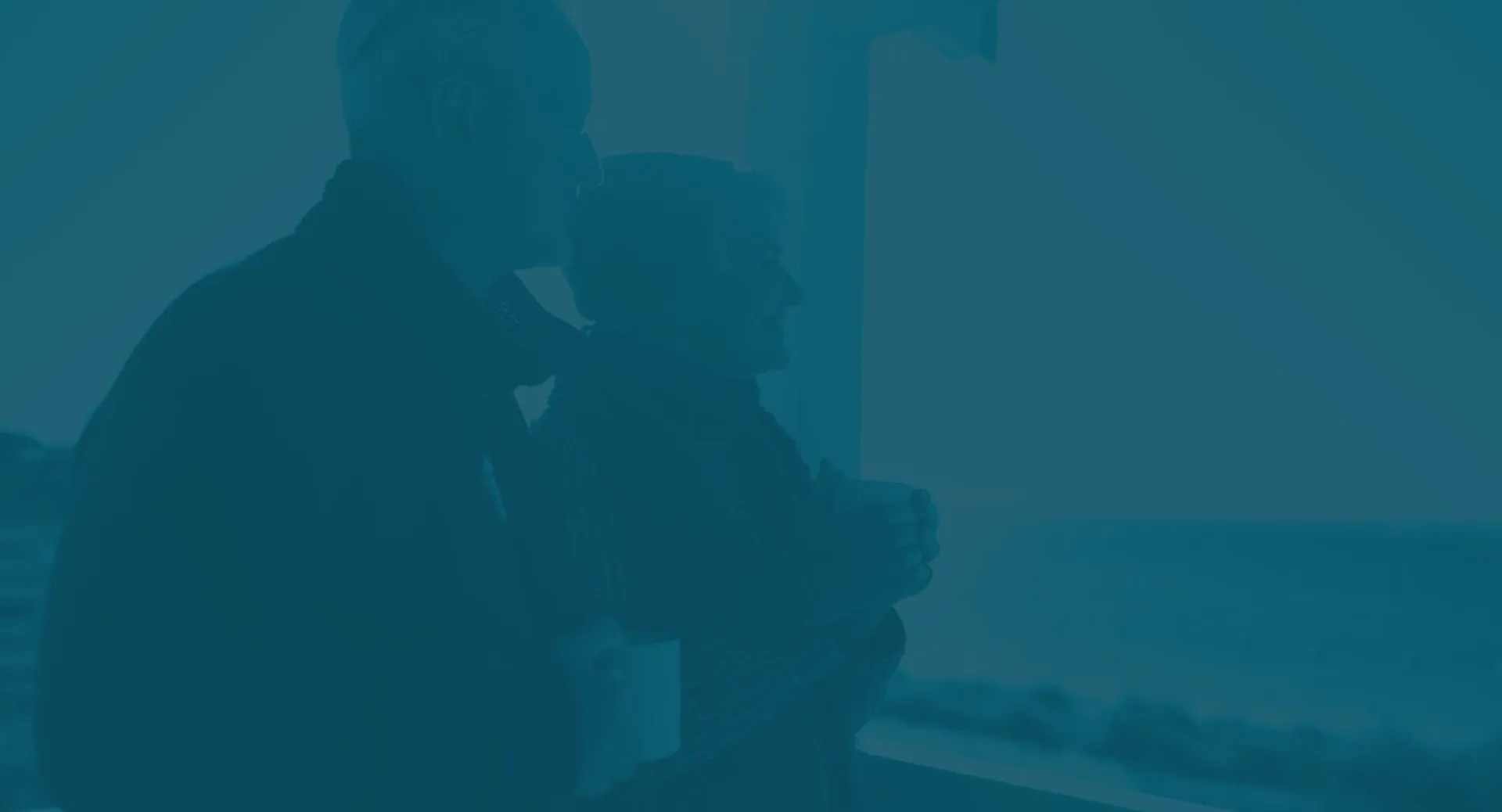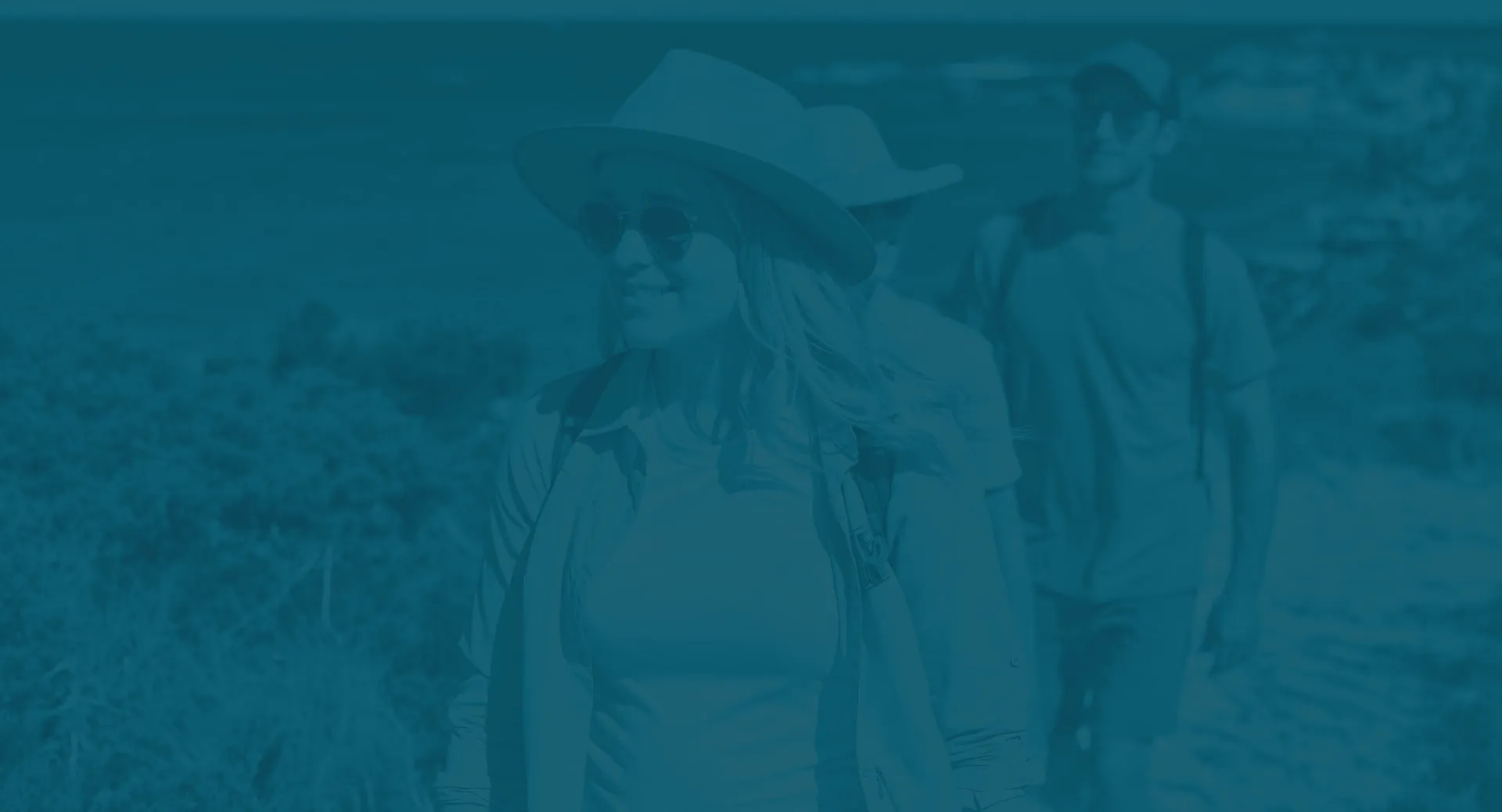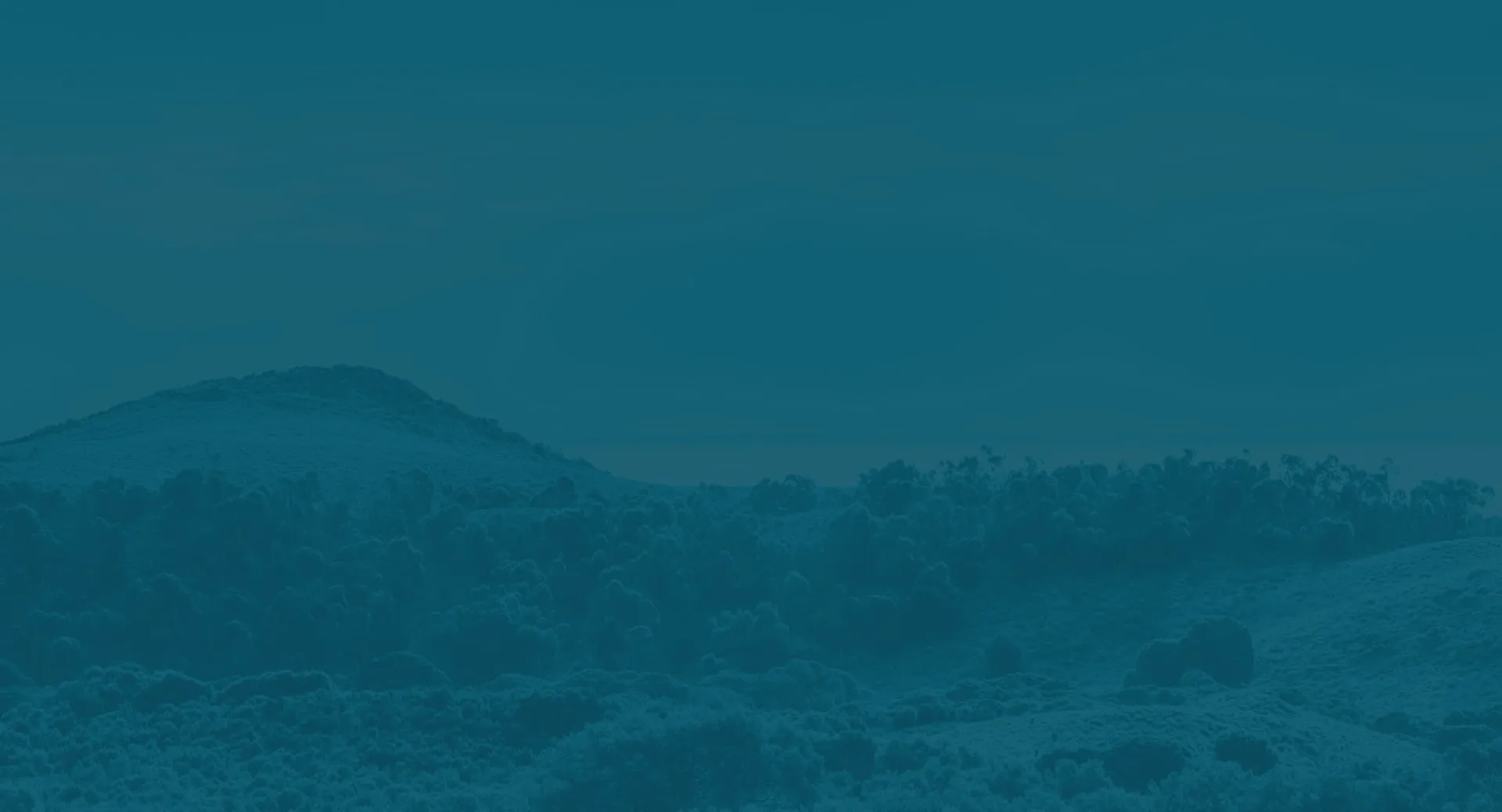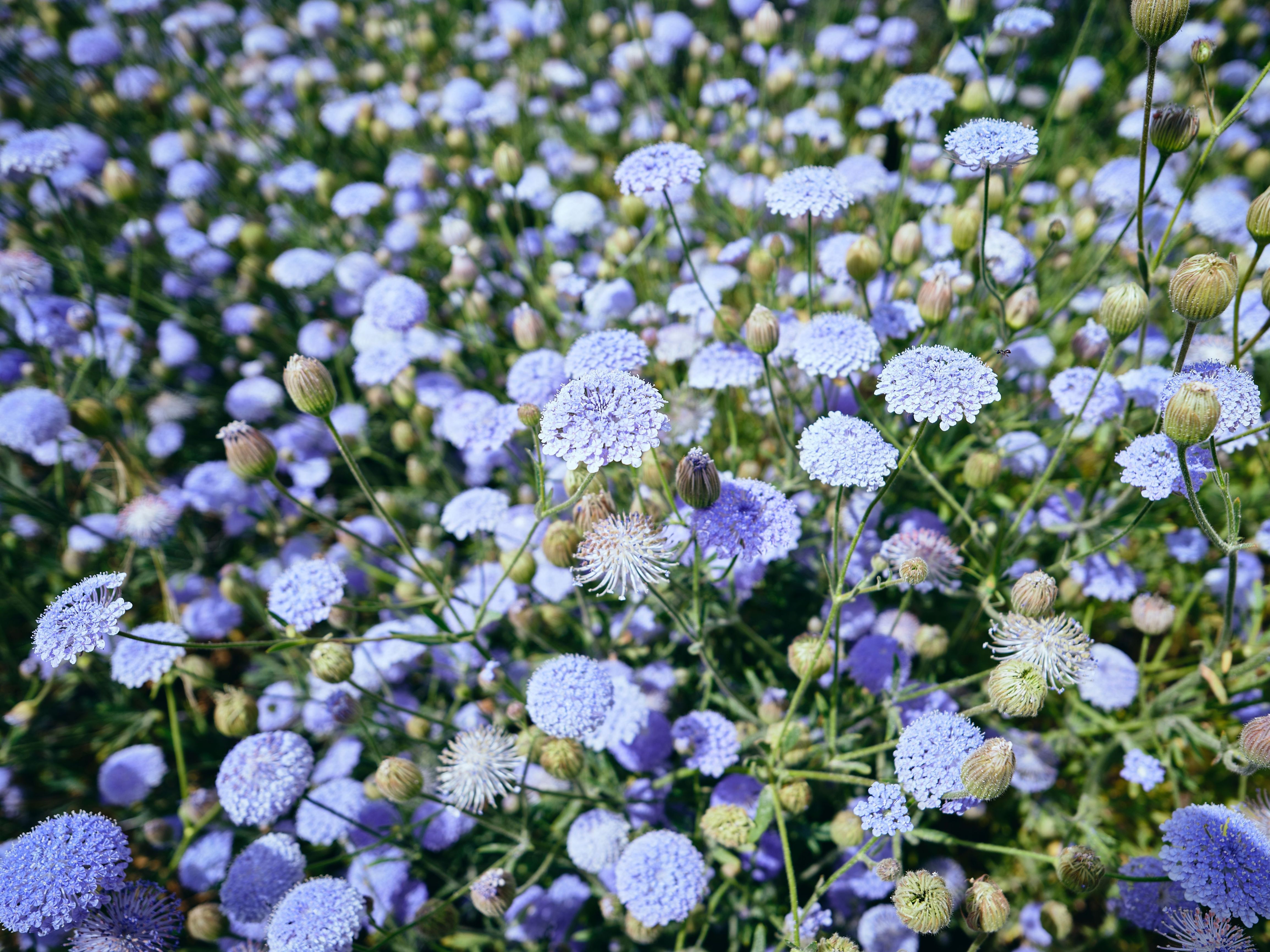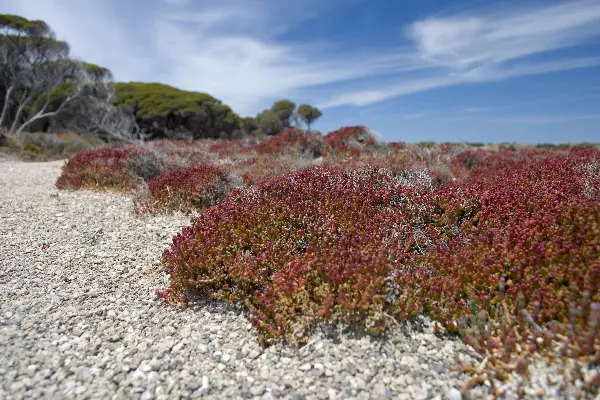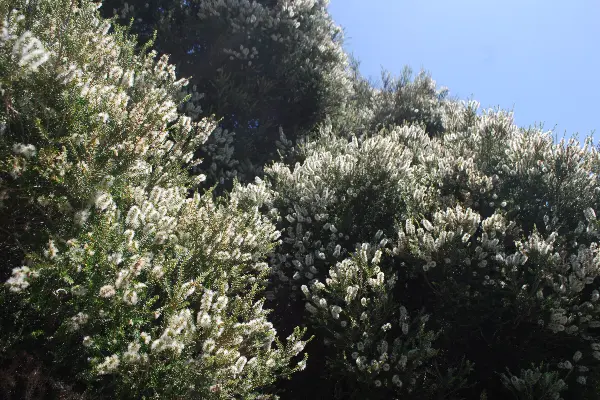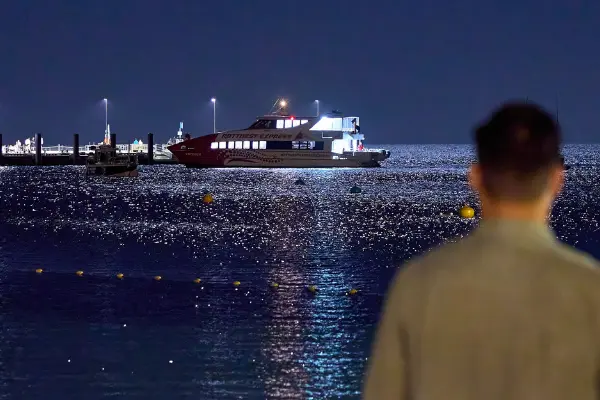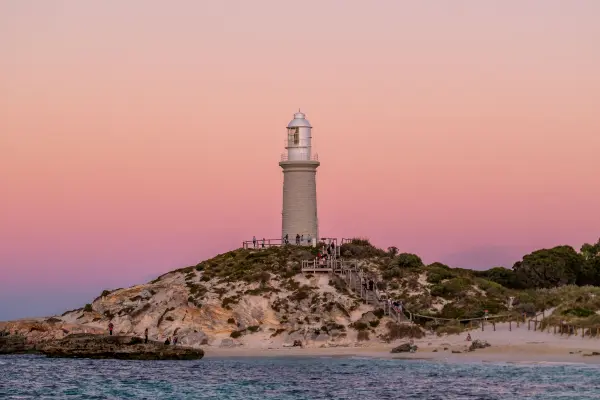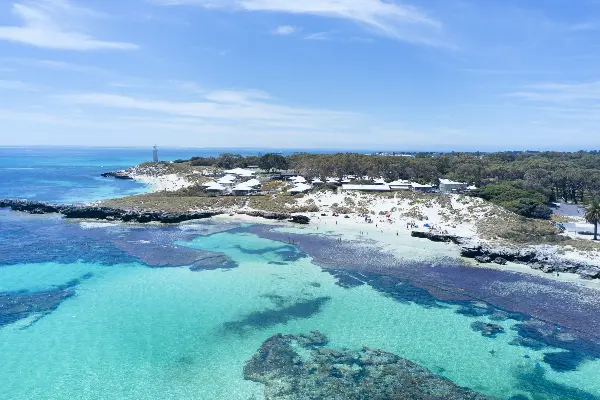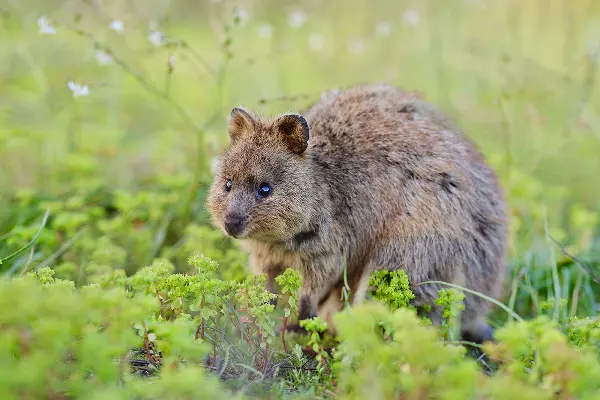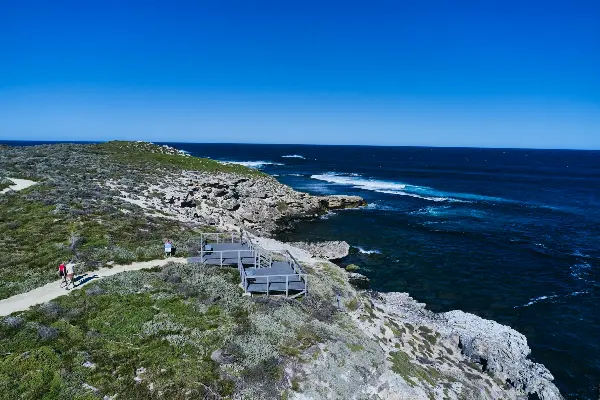The sun is shining, bees are pollinating, and flowers are blooming: it must be wildflower season on Wadjemup / Rottnest Island.
September marks the arrival of spring on the island and the second month of the Noongar season of Djilba. This period is defined by warmer, sunnier days and sprinklings of rain, creating a transitional period for seeds to burst and plants to flower. Wildflower season on Wadjemup officially starts around September although some will begin blooming as early as July until the early summer months, creating a sweeping eruption of colour over the island.
The wildflowers of Wadjemup
Wadjemup Daisy
When: late October to December
Where: Parker Point, Henrietta Rocks, Oliver Hill
The island’s iconic native daisy stands tall and proud between the months of October and December. The distinctive blue-purple petals unfurl from domed flower heads, creating clusters that mimic starry explosions across the dunes behind Henrietta Rocks and Parker Point. A little further west at Oliver Hill, another large constellation sways beneath the dappled light of the tuart trees.
Tar Bush
When: July to October
Where: Vlamingh Lookout
Glimpses of the warm orange florals on this small shrub offer a sense of warmth when the temperatures are still on the cooler side. Flowering as early as July, this plant features unique, tubular flowers and can be found commonly around coastal heaths and the path up to Vlamingh Lookout.
Old man’s beard
When: July to September
Where: Island wide
Another early bloomer includes this widespread climbing plant. It’s white, outstretched flowers can be witnessed sporadically around Wadjemup. Curiously, these florals feature a design that loosely mirrors the large wind turbine spinning on Mt Herschel.
Cockies tongues
When: July to September
Where: Western end of Geordie Bay
You can’t miss this colourful shrub when its flame-like florals are on display. These rich red flowers feature curled back petals, mimicking the shape of its common namesake. This species blooms from July to September around the western end of Geordie Bay.
Grey cottonhead
When: August to September
Where: Island wide
Don’t let the name deceive you, this plant produces bright, bell-shaped flowers when in bloom. Grey cottonhead commonly flowers beside island trails, so you won’t miss the sunshine-yellow hues as you walk or cycle around the island.
Samphire
When: August to December
Where: Around Garden Lake
This unique plant, also known as sea asparagus, features bead-like leaves and glassy shoots that adorn the shorelines of the salt lakes in stunning shades of red and pink. Perfectly adapted to the coastal environment, it adds vibrant splashes of colour to the island's natural landscape.
Coastal groundsel
When: August to October
Where: Below Vlamingh Lookout and West End
This delicate daisy is abundant on the island, with pleasant yellow petals that gently bob in the spring breeze. Naturally bountiful on the island, this makes for a welcome sight to those exploring the West End or Vlamingh Lookout.
Shark’s tooth wattle
When: August to October
Where: In sand in southern and western parts of the island, also planted in the main settlement
Throughout the year the angular leaves might catch your eye, but it’s during wildflower season that this wattle truly comes to life. When flowering, it bursts with masses of soft yellow spheres and thrives in heathland and coastal areas.
Nitre bush
When: September
Where: Cape Vlamingh
This sprawling shrub is commonly found where seabirds roost, such as the exposed heaths and cliffs of Cape Vlamingh. It’s a vivid illustration of the symbiotic relationship between the island’s flora and fauna, with white flowers unfurling in the presence of guano-enriched soil from the large colony of wedge-tailed shearwater birds that live on the island.
Fan flower
When: November to February
Where: Island wide throughout coastal heaths
The pale blue colouring of this petite flower pairs perfectly with the Wadjemup sky. Found on sprawling shrubs, each flower features fan-shaped petals that stretch away from fleshy green leaves. Find them around the settlement, and the island’s coastal heaths.
Rottnest Island tea tree
When: Year-round with the flowers blooming during summer
Where: Main settlement, Vlamingh Lookout, Parker Point, Little Salmon Bay
Cast your gaze upwards to appreciate this large native tree. The moonah features bottlebrush-like white flowers that burst out amongst dense branches.
Coastal pigface
When: September
Where: Cape Vlamingh
This creeping perennial lays low, with stems that trail lazily in the surrounding sand. Found amongst the exposed beauty of Cape Vlamingh, it boasts bright pink florals that demand the attention of all those who pass by.
TOP SPOTS TO ENJOY WILDFLOWERS
Main settlement
Even if your visit to the island during wildflower season is brief, one thing’s certain: you don’t have to wander far to view a variety of blooms. Stroll around the settlement and marvel at the different hues that surround you.
See: Coastal groundsel, shark’s tooth wattle, Rottnest Island tea tree, fan flower
Southern side
No visit during wildflower season is complete without casting your eyes upon the purple daisies that illuminate the land. The Ngank Yira Bidi travels through Oliver Hill and Henrietta Rocks allowing ample opportunities to pause and observe. Sections of the stunning Wardan Nara Bidi also cover Oliver Hill and Parker Point, where the Wadjemup daisy is a decorative highlight. Embrace these hikes under the guidance of The Hike Collective, or take to the trails at your own pace.
See: Wadjemup daisy, Rottnest Island tea tree
Northern coastline
Colour combinations around Longreach Bay and Geordie Bay include baby blues and brilliant reds. Come here for celebrated floral finds that complement the diverse seascape. The Gabbi Karniny Bidi winds around these beautiful bays, offering a welcome opportunity to appreciate the surrounding seasonal blooms.
See: Cockies tongues, fan flower
West End
The rugged coastline and rolling swell of this remote area of the island is a stark contrast to the delicate florals that flourish here. Wander the Ngank Wen Bidi section of the Wadjemup Bidi and the boardwalk around Cape Vlamingh for kaleidoscopic display.
See: Tar bush, coastal groundsel, nitre bush, coastal pigface.
Tips for a time well spent
Make your visit even more meaningful with helpful advice from those in the know.
